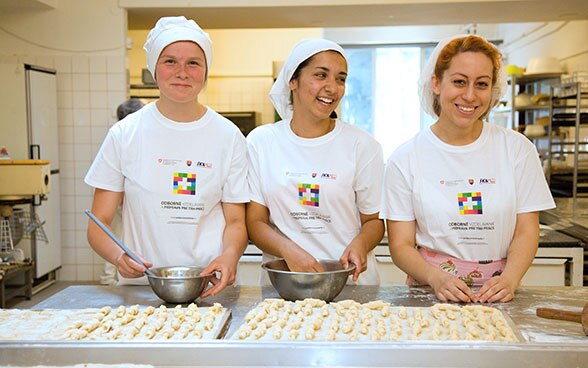
S. Oyun has been a Member of Mongolia’s Parliament since 1998. She was the former Minister of Foreign Affairs and is presently the outgoing Minister of Environment and Green Development. She is one of the country’s highest-ranking officials, and has had a long history of supporting cooperation with SDC in Mongolia, dating back to 2005 when she headed the Swiss-Mongolian Parliamentary Group tasked with further strengthening Swiss-Mongolian relations at the parliamentary level. As the Minister for Foreign Affairs, she contributed to the advancement of bilateral relations between the two countries in the sphere of foreign policy. As the Minister of Environment and Green Development, she has frequently engaged with SDC in relation to Mongolia’s environmental agenda.
Oyun is also the founder and head of the Zorig Foundation, a Mongolian NGO that advocates for democracy and youth development that is named after her brother – murdered pro-democracy leader S. Zorig.
SDC has been supporting the Zorig Foundation’s youth programme since 2007 through funding for its Scholarship Programme. The programme has made it possible for more than 800 academically gifted students from low-income families to pursue university studies. Recent studies have found that more than 80 percent of scholarship recipients were employed after graduation.
To mark the 10th anniversary of Swiss Development Cooperation with Mongolia, ‘Onsite Insights’ invited Minister S. Oyun for an interview to highlight SDC’s presence in Mongolia, particularly her impressions of SDC’s environmental work.
You know that SDC is this year celebrating the 10th anniversary of its cooperation with Mongolia. What are your thoughts on the Swiss-Mongolian partnerships? Is there anything specific that you would like to highlight?
In general, SDC projects are well targeted, and I greatly appreciate what SDC does in Mongolia. It sees the needs of local communities and responds to them with timely and targeted support. Specifically, desertification is one of the most pressing environmental problems we face in Mongolia. I can only comment on the significance of SDC’s support in advancing our policies and approaches to prevent further desertification. We have greatly valued the studies and recommendations from SDC’s Coping with Desertification Project throughout the past eight years. We have received a lot of information that is of great value. Mongolia has been more affected by the negative consequences of global climate change. Ever-expanding desertification is clearly one of the negative impacts on our country. SDC’s project was successful in dealing with these issues, particularly in reversing trends in arid areas and pasture degradation. This is an important issue for Mongolia’s long-term priorities.
You are also familiar with the SDC-financed eco-schools – a youth environmental movement aimed at promoting green development in Mongolia. What are your thoughts?
Soon after I became the Minister of Environment and Green Development, I visited the eco-schools. I understood that environmental education for young children is the foundation for Mongolia’s future green development. After becoming acquainted with eco-schools and the concepts of eco-education, we named 2013 the Year for Eco-education, advocating environmental education for youth and the public as the basis for building green and eco-friendly communities.
Our cooperation with SDC has further developed into a broader programme on Education for Sustainable Development. This is a joint programme between our ministry, the Ministry of Education and Science and SDC which will incorporate environmental education into the secondary education curriculum. This will lay a strong foundation for Mongolia’s future green development. I see an even greener future when youth are educated through environmentally friendly curricula in their schools.
What is your impression of SDC’s cooperation in terms of the Scholarship Programme?
SDC and the Zorig Foundation have been cooperating for nine years, providing well-targeted scholarships for more than 800 university students from low-income households. This programme is unique and significant in the way that it also provides the scholarship awardees with an opportunity to implement social projects that contribute to communities. The awardees are encouraged to work in teams to undertake research and implement a small-scale community project. Through these projects, they are also paying back what they have received, and it also contributes to the strengthening of their social skills.
I strongly believe that intellectual investment is more valuable than any other investment. Natural resources are important for our nation’s development, but intellectual resources are the key to our development.
Thank you.


